"Sometimes you may want to limit your search results to a specific reading level. For instance, a junior high school teacher looking for content for her students or a second-language learner might want web pages written at a basic reading level. A scientist searching for the latest findings from the experts may want to limit results to those at advanced reading levels," suggests Google.

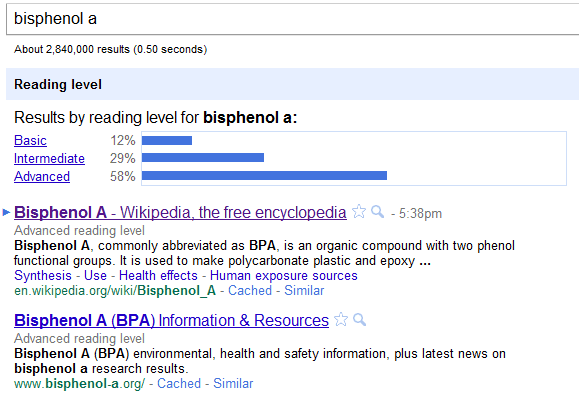
Right now, this feature is only available for English web pages, but Google doesn't mention if it uses the Flesch–Kincaid readability tests.
According to Google, less than half of the indexed pages are written at a basic reading level, half of the pages are written at an intermediate reading level and about 2% of the pages are written at an advanced reading level.
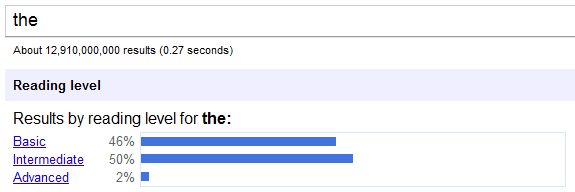
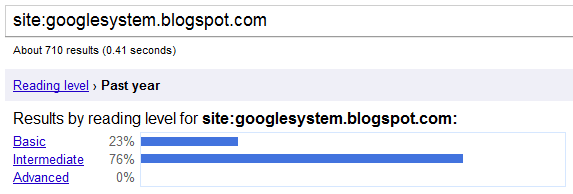
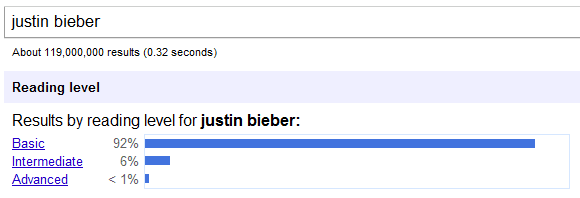
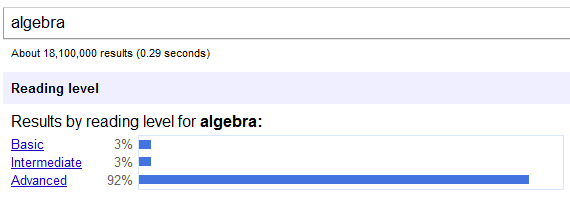
{ via Search Engine Roundtable }

Hmm, I'm intrigued. I think this blog will break into the advanced category, some time.
ReplyDeletePoor Justin . . .
I wonder if that is a good thing. It would be interesting to see before and after site usage statistics for selected search terms.
ReplyDeleteIt will be helpfull for those who need some basic or simple results and also for those who need advance results.
ReplyDeleteGoog I Like it.
Helpful, it really is.
ReplyDeleteAnd wow. I got 21% Basic, 40% Intermediate, 38% Advanced for my name. Try for yourself.
All hail Google.
ReplyDeleteVery interesting indeed. It's not only useful for finding search results but as a tool of interest. For example, I found that less than 1% of pages dealing with "advanced molecular design" are at a basic level, while less than 1% of pages dealing with "how to add" are at an advanced level.
ReplyDeleteI think that the most telling thing about this article is that the "Justin Bieber" vs. "the" ratio for web pages is nearly 1:100. Yikes!
ReplyDeleteIn all seriousness, though, this really is helpful. If only it worked for other languages, I wouldn't have so much trouble trying to read foreign news articles I can't yet understand!
This is something really great. Solution of the most annoying problem that I face more often like looking for some information finally got it but during reading I come to know that this is something belong to very high level and I can't understand it, such moments are really very killing.
ReplyDelete